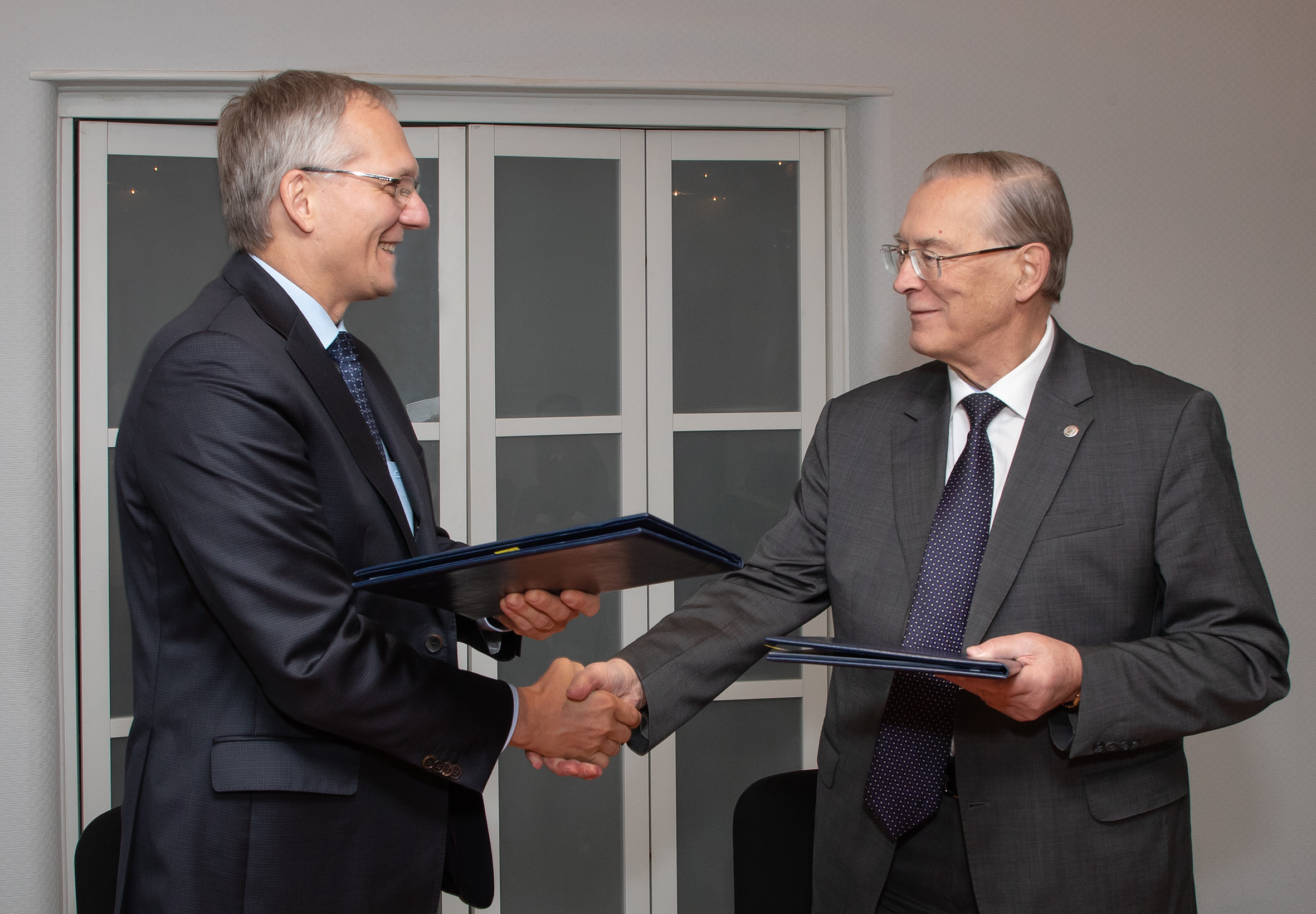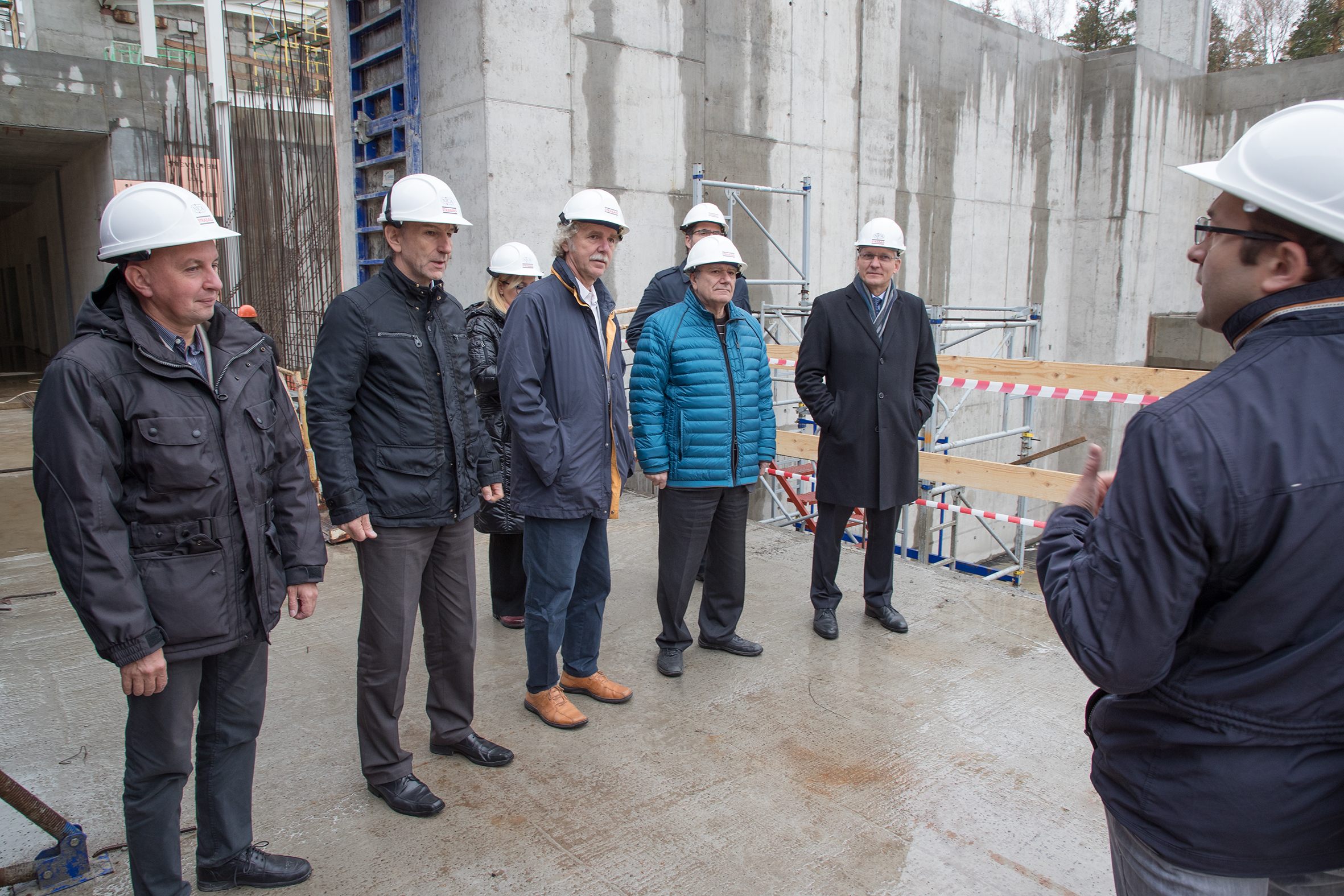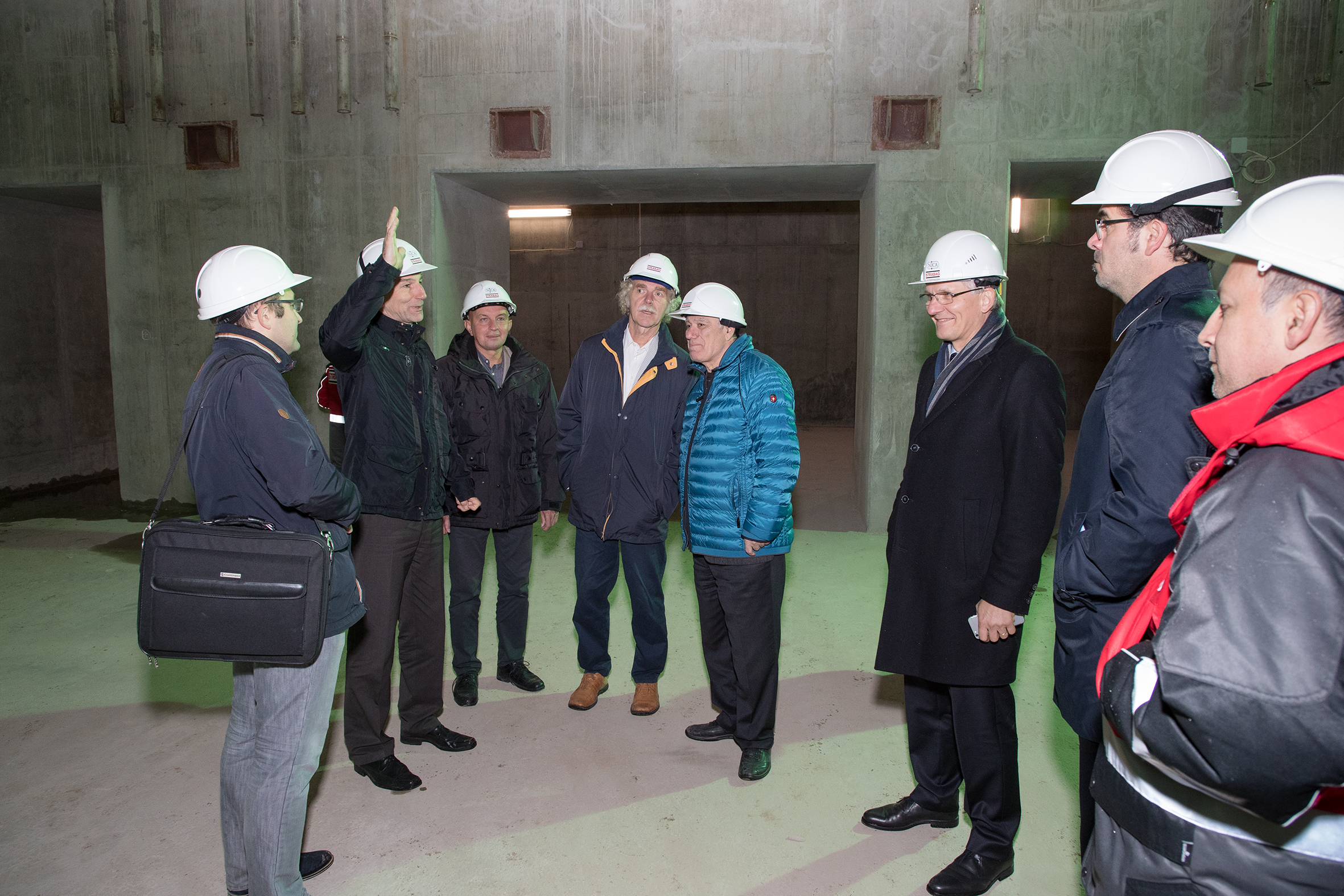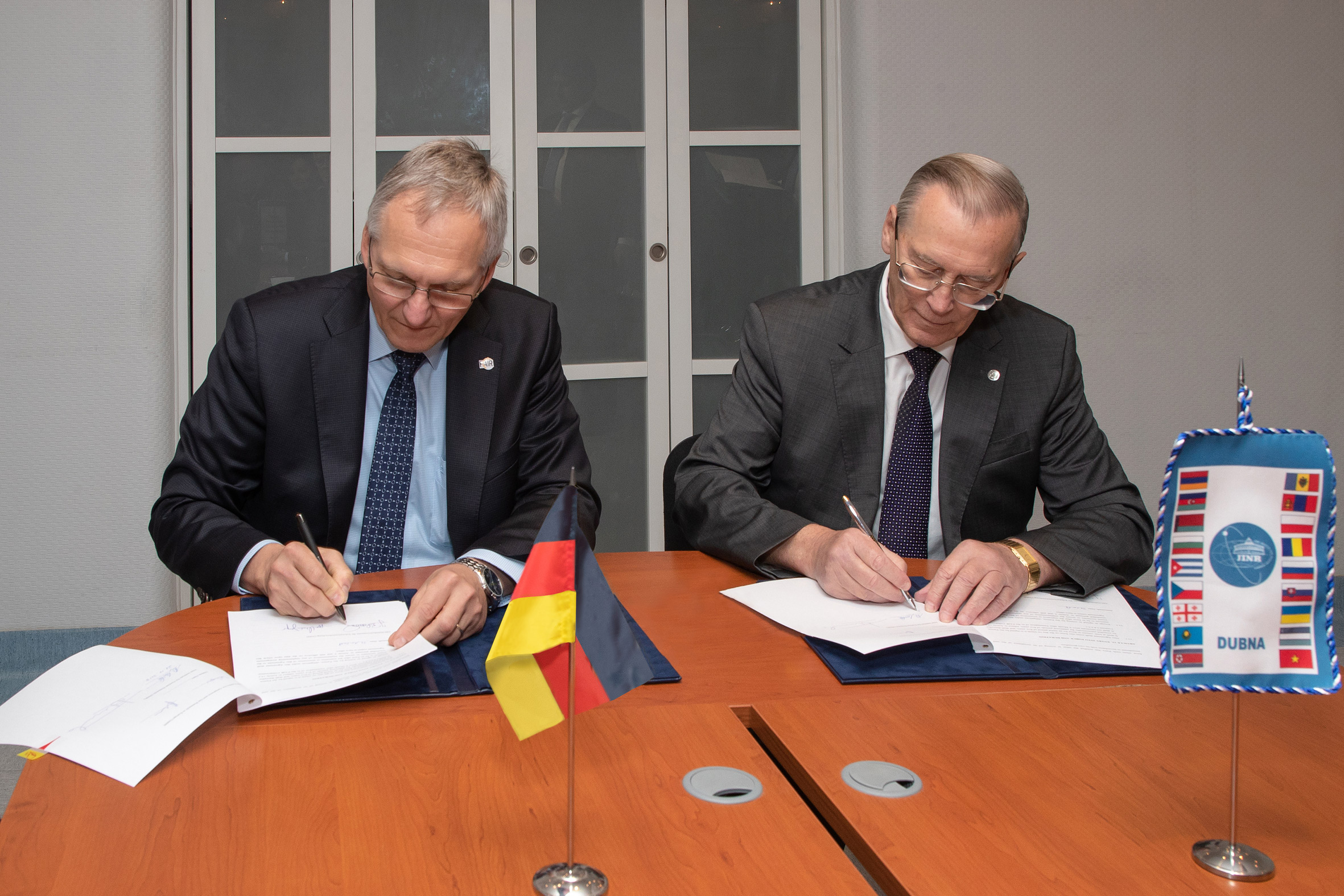New agreement on JINR-FAIR/GSI cooperation signed
News, 30 October 2018
On 24 – 26 October 2018, a visit to JINR was paid by a delegation from the GSI Helmholtz Centre for Heavy Ion Research (Darmstadt), where the world largest accelerator complex FAIR is being constructed. The delegation was represented by GSI and FAIR Technical Director Jörk Blaurock, SIS100/SIS18 Leader Peter Spiller, Head of the Department of Superconducting Magnets and Testing (SCM) Christian Roux as well as staff members of this department Alexander Bleile and Egbert Fischer.
The main goal of the visit was to finalize and sign agreements on joint work in the fields of superconducting magnets. JINR and GSI have a long and fruitful history of cooperation, in the frames of which, on 1 April 2015, the parties signed an agreement implying that JINR would produce quadrupole units for the SIS100 accelerator of FAIR. According to this agreement, JINR undertook a commitment to assemble 166 units of structural quadrupole and corrector magnets for the FAIR main ring – the SIS100 superconducting synchrotron. Before delivery to the FAIR centre, quadruple blocks for SIS100 should undergo complex cryogenic testing at the test stand of the Veksler and Baldin Laboratory of High Energy Physics that was designed, built and launched in 2016 at the Joint Institute in cooperation with GSI. The previous JINR-GSI cooperation agreement expired on 1 August 2018, and the parties expressed their intention to continue and develop their successful cooperation.
As far as Jörk Blaurock visited JINR for the first time, an introductory excursion around the objects of the JINR scientific infrastructure was organized to the delegation. The guests visited the Flerov Laboratory of Nuclear Reactions, the Laboratory of Information Technologies, and the Veksler and Baldin Laboratory of High Energy Physics where Jörk Blaurock provided an introductory lecture on the management system of the FAIR project, progress on the project’s implementation, and participation of JINR in it. As a part of the working visit, meetings of the delegation with the JINR Directorate and leaders of the JINR laboratories were held.
On 26 October 2018, as a result of the visit, a framework Agreement on cooperation between GSI, FAIR and JINR was signed. The same day, in the frames of implementation of the Agreement, the parties signed a contract on carrying out cryogenic testing of superconducting magnets for the SIS100 accelerator at JINR. The signed framework Agreement on cooperation provides a possibility of signing other contracts for its implementation as well.
JINR Vice-Director Academician B.Yu. Sharkov commented on signing of the Agreement: “Today, a very important contract on testing superconducting magnets was signed. These are the magnets that have been developed and are now produced at JINR, in the Laboratory of High Energy Physics. Nowadays, our Western colleagues adopt that technology. It is an important moment as far as it is our high-tech contribution to the development of the world largest accelerator centre FAIR on the one hand, and on the other hand, this contract is very beneficial for JINR, so it will bring development of human and technological potential of our Institute.”
GSI and FAIR Technical Director Jörk Blaurock: “It is the first time I am in Dubna and I would like to note a great impression of the yesterday’s excursion around JINR. We visited the JINR laboratories, got acquainted with their scientific programmes, and I was very impressed by the activities and the amount of different processes ongoing here. A big joint work was done before, and today we have signed the contract on testing superconducting quadrupole units for the FAIR project that have been produced at JINR. Now, they will be tested here at JINR before being shipped to Darmstadt. We also signed the cooperation agreement, which is broader. FAIR is a large-scale project, we have not yet completed all the activities, and this agreement provides several opportunities to enhance our cooperation in the future. The major fields of joint work are production and testing of magnets, but there are prospects for development of techniques and technologies for our experiments as well, for example for the CBM experiment.”




